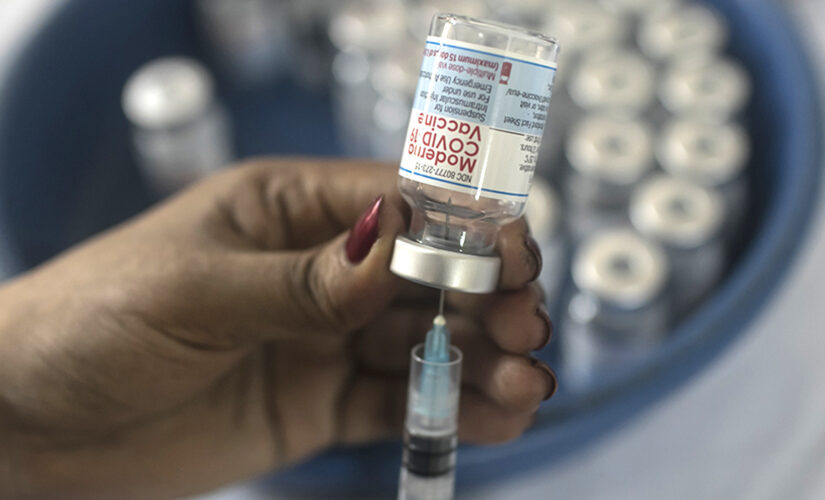A U.S. Food and Drug Administration (FDA) advisory panel on Thursday endorsed emergency authorization for Moderna’s half-dose COVID-19 vaccine booster shot when administered at least six months following the two-dose series among people ages 65 and older and those ages 18-64 at high risk of occupational exposure and severe COVID-19.
The vote was 19-0. The recommendation is not final and will go before the FDA to issue an official decision.
CLICK HERE TO FIND A COVID-19 VACCINE NEAR YOU
September 8, 2021: A nurse prepares the Moderna COVID-19 vaccine booster dose during a mass vaccination campaign in Dhaka, Bangladesh.
(Sazzad Hossain / Eyepix Group/Barcroft Media via Getty Images)
The FDA’s Vaccines and Related Biological Products Advisory Committee, (VRBPAC) was charged with voting whether available data supported the safety and effectiveness of a 50 microgram booster dose among three high risk groups:
Individuals 65 years of age and older,Individuals 18-64 years of age at high risk of severe COVID-19, andIndividuals 18 through 64 years of age whose frequent institutional or occupational exposure to SARS-CoV-2 puts them at high risk of serious complications of COVID-19 including severe COVID-19.
Dr. Jacqueline Miller, infectious diseases therapeutic area head at Moderna, presented company findings among some 344 participants indicating the booster shot failed to meet FDA criteria by a narrow margin; the shot didn’t result in a four-fold increased immune response, likely due to high protection afforded from the primary series, though recipients still benefited from the shot. More specifically, Moderna officials explained that participants’ immune systems were likely impacted by the presence of pre-existing antibodies.
The booster did result in a 42-fold increase in antibody levels against the highly transmissible delta variant, with mostly mild-to-moderate side effects. The most common side effects included injection site pain, headache, fatigue and myalgia. Miller concluded the 50 microgram booster dose could address waning antibody levels and reduce breakthrough infections tied to the delta variant.
Following the panel’s decision, voting member Dr. Patrick Moore weighed in, adding in part: “I’ve got some real issues with this vote … The data itself is not strong but it is certainly going in a direction that is supportive of this vote.”
CLICK HERE FOR FULL CORONAVIRUS COVERAGE
Dr. Peter Marks, director of the FDA’s Center for Biologics Evaluation and Research, noted that the vaccines still offer strong protection against serious outcomes, however vaccine effectiveness against mild-to-moderate disease appears to wane over time, and complications from mild-to-moderate COVID-19 disease may include blood clots and long COVID-19.
Data from Israel’s rollout of the Pfizer-BioNTech booster shot were also presented during the meeting, with findings indicating improved protection against severe disease among individuals ages 40 and older, and enhanced protection against confirmed infection among people ages 16 and older. Dr. Sharon Alroy-Preis, public health services director at Israel’s Health Ministry, said the country is experiencing a break in the pandemic curve, and she cited the Pfizer booster shot in helping the country overcome a fourth COVID-19 wave by easing hospital burden and severe disease.
However, some FDA advisers cautioned over extrapolating data from other countries.




